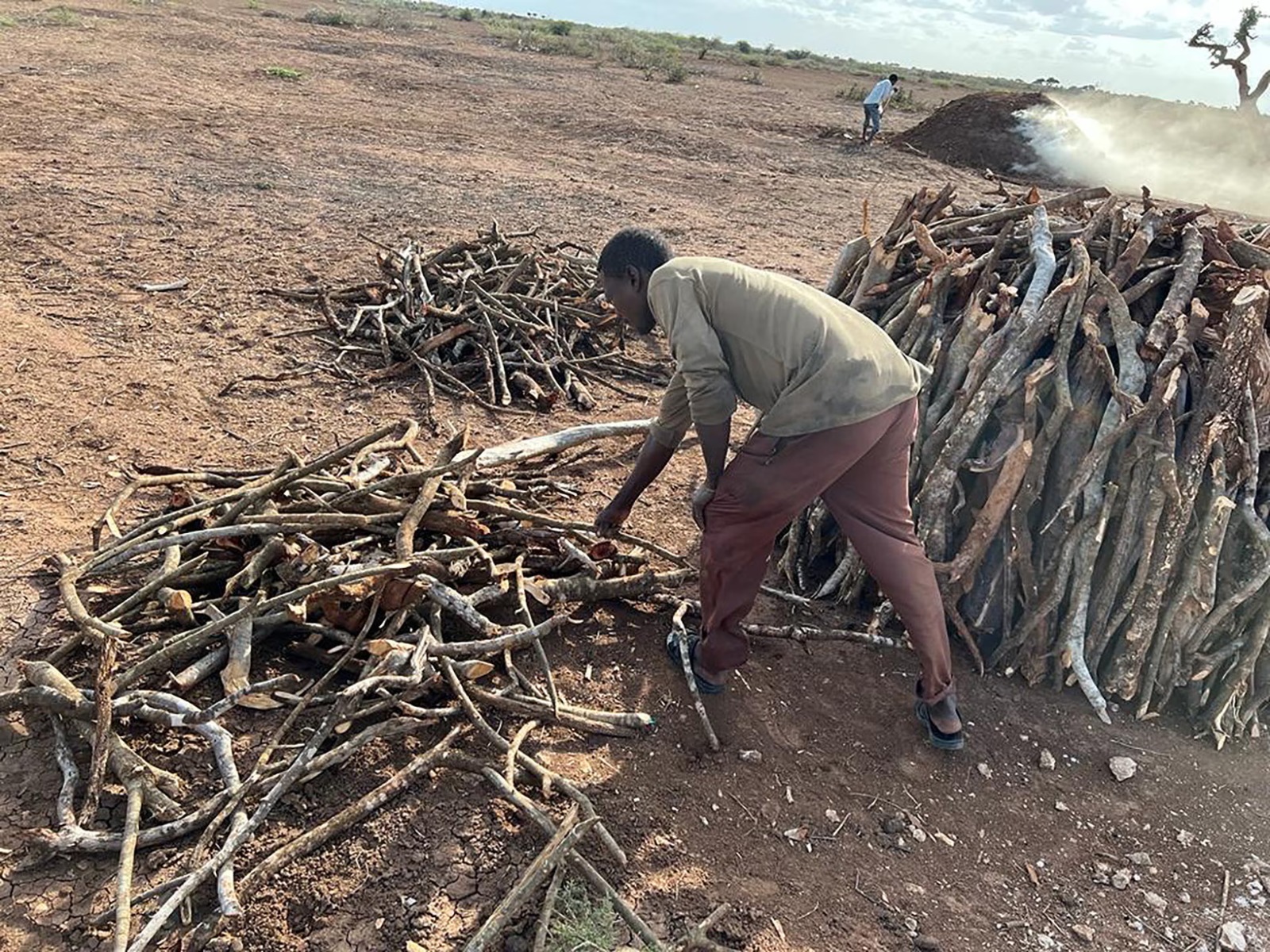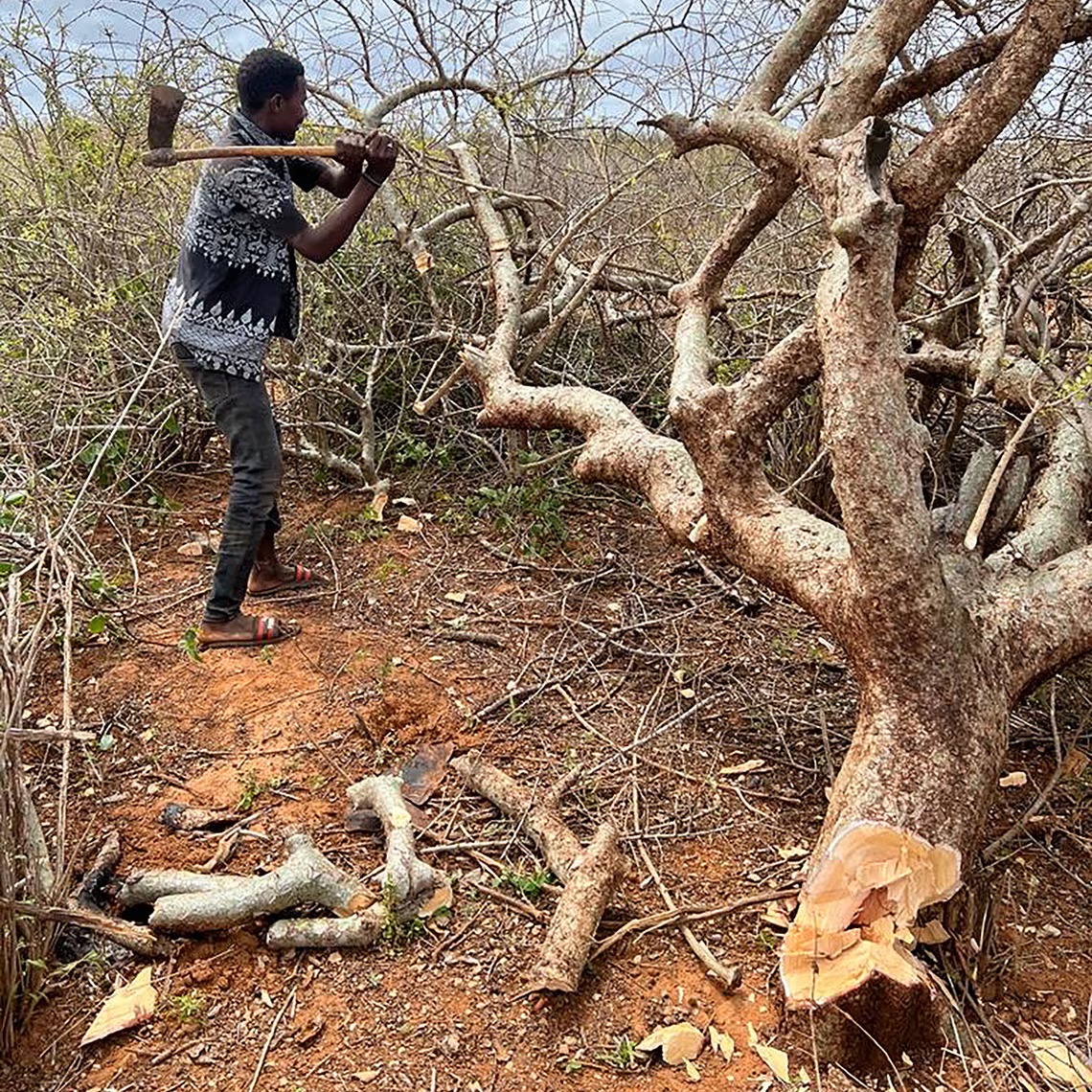In Somalia, charcoal burning has long been a crucial source of energy for cooking and heating, particularly in rural areas.
However, this practice significantly contributes to climate change, exacerbating the environmental challenges the country faces. As the founder of the Green Hope Movement (GHM), Mohamoud Mohamed emphasizes, “The reliance on charcoal is not just an economic issue; it’s a matter of survival for many families. Yet, we must consider the environmental costs that come with it.”

The process of charcoal production involves cutting down trees and burning them in kilns, releasing carbon dioxide and other greenhouse gases into the atmosphere. “Every piece of charcoal represents a tree that could have absorbed carbon and provided shelter for wildlife,” Mohamed points out. “Deforestation driven by charcoal burning not only contributes to climate change but also destroys vital ecosystems that are essential for our biodiversity.”
The impacts of climate change are evident across Somalia, with communities facing the harsh realities of droughts, floods, and water scarcity. Charcoal burning contributes to these issues by reducing tree cover, which plays a critical role in maintaining the ecological balance. “We need to shift our focus to sustainable energy sources,” Mohamed insists. “Investing in alternative energy solutions, such as solar power, can significantly reduce our dependence on charcoal and mitigate climate change.”

Moreover, the charcoal trade often fuels illegal logging, leading to further environmental degradation. “It’s a vicious cycle,” Mohamed explains. “Communities need economic alternatives that are sustainable. By empowering them with the right knowledge and resources, we can shift away from charcoal dependency and promote environmental stewardship.”
GHM is actively working to address these issues by raising awareness and providing training on sustainable practices. “Education is key,” says Mohamed. “When communities understand the impact of their actions, they are more likely to seek sustainable solutions.” The organization has initiated programs to promote tree planting and the use of alternative energy sources, aiming to reduce charcoal consumption and combat climate change.
“Protecting our environment is not just about saving trees; it’s about safeguarding our future,” emphasizes Mohamed. He believes that through community engagement and advocacy, it’s possible to create a sustainable future for Somalia. “We can turn the tide against climate change if we work together to implement sustainable practices.”
As Somalia continues to grapple with the realities of climate change, it’s crucial to recognize the detrimental effects of charcoal burning. By embracing sustainable energy solutions and fostering a culture of environmental responsibility, the Green Hope Movement, under the leadership of Mohamoud Mohamed, aims to inspire communities to take charge of their environmental destiny. “It’s time for us to reimagine our relationship with nature and commit to a path of sustainability,” he concludes.
The link between charcoal burning and climate change is clear, and addressing this issue is vital for the well-being of both the environment and the people of Somalia. With collective efforts and a commitment to sustainable practices, we can pave the way for a greener and more resilient future.










